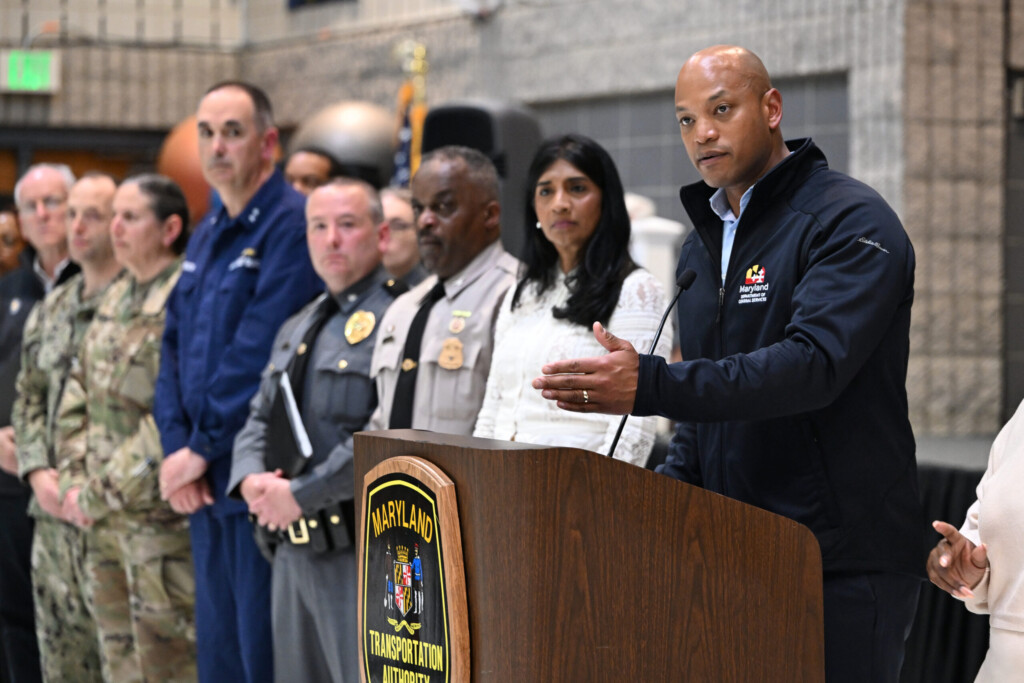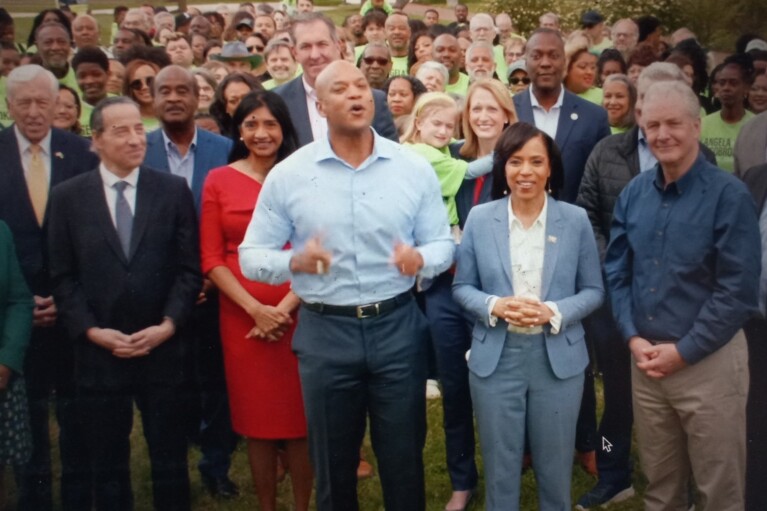Some lawmakers wonder: Should Moore be more engaged in budget impasse?

Gov. Wes Moore (D) is understandably and necessarily consumed with the Francis Scott Key bridge disaster and its myriad impacts.
But the ship of state continues sailing, and as House and Senate leaders continue to clash over the governor’s $63 billion operating budget proposal in the waning days of the General Assembly session, some lawmakers wish they would get stronger signals about the administration’s preferences for how to resolve their differences.
“I think we’d always welcome their views on how to fund priority items like the Blueprint [for Maryland’s Future education reform plan] and transportation,” said Del. Marc Korman (D-Montgomery), chair of the House Environment and Transportation Committee and a member of one of two House-Senate conference committees deliberating over spending and taxes.
Moore released his budget plan in January. The General Assembly session is set to end next Monday, but Moore earlier this week issued a proclamation that would enable legislative leaders to extend the session by another 10 days to complete work on the budget, in case they need it.
“We introduced a budget at the start of session that made historic investments in education, historic investments in child care, historic investments in housing, and it was a budget that we passed without raising any taxes,” the governor said on WYPR’s “Midday” Tuesday.
Moore has also said repeatedly that “the bar is very high” for him to consider any new revenues or tax increase proposals.
That hasn’t stopped House leaders from attempting to insert $1.2 billion in higher taxes and revenue enhancements into budget reconciliation legislation. Their theory is that tax increases will become necessary in the next year anyway, given substantial projected budget deficits, and they have argued that the anticipated shortfall ought to be dealt with sooner rather than later.
Senate leaders, while conceding that predicted deficits will need to be addressed eventually, have so far resisted most of the House proposals for generating revenue, though they have agreed to certain fee increases and might accede to others.
The House-Senate conference committees are scheduled to have another session on Wednesday afternoon. Helene T. Grady, Moore’s budget secretary, and Marc L. Nicole, deputy secretary of the Department of Budget and Management, have sat in on the two conference committee meetings so far, but have not attempted to intervene in the process.
Eric Luedtke, Moore’s chief legislative liaison, said Tuesday that the governor’s strategy on the budget deliberations is unchanged.
“He continues to push both parties for a compromise and he continues to have a high bar” for raising taxes, Luedtke said.
Speaking of the budget conferees on WYPR Tuesday, Moore said, “I want to make sure we are giving them the space” to reach an agreement.
During a news conference on the state’s efforts to respond to the Key Bridge collapse later in the afternoon Tuesday, Moore said the two sides “are working in good faith” and are “not too far apart.”
But within the legislature, a few different dynamics are at play.
There’s a long accepted wisdom in Annapolis that if tax increases are going to become necessary in a four-year legislative term, the second year is the best time to do it, to ensure a certain distance between the impact on residents’ pocketbooks and the next election, which in this case would be in 2026.
And after eight years of operating under former Gov. Larry Hogan (R), Democrats, who have supermajorities in both houses of the legislature, have become used to largely ignoring the chief executive and setting their own agenda. Since Moore took office last year, Democratic lawmakers have been sensitive to his priorities and by and large eager to advance his agenda, but they are still comfortable charting their own course.
Which doesn’t mean they wouldn’t appreciate more guidance from the administration on the current budget deliberations.
Moore frequently talks about operating “in partnership” with Annapolis lawmakers, but on many issues this session, even before the all-consuming Key Bridge disaster, he has very clearly allowed them to take the lead. And so his public stance on the late House-Senate budget negotiations need to be viewed in that context.
Moore and Senate leaders largely seem in accord on the wisdom and necessity of tax increases this year. And the fallout from the Key Bridge collapse has now become an undeniable factor in the conversation.
“We’re monitoring daily the economic impact that we’ve seen” from the catastrophe, the governor said Tuesday on WYPR.
Throughout the legislative session, Senate President Bill Ferguson (D-Baltimore City) has asserted that the time is not right for tax increases due in part to high inflation and the lingering economic unease caused by the pandemic. The Key Bridge collapse has reinforced his argument.
“Now’s not the right time to ask for an additional $300-$400 million of taxes and fees for transportation investments when things are so uncertain,” Ferguson told reporters Tuesday.
But the Senate president has also frequently suggested that creating robust economic growth will help take care of some of the state’s fiscal woes. That prospect now also seems less certain due to the economic ripple effects of the Key Bridge collapse.
In the view of House Appropriations Committee Chair Ben Barnes (D-Prince George’s and Anne Arundel), Moore’s faith in the budget conferees is a sign that the House’s calls for more revenue enhancements merit serious considerations.
“I think he’s weighed in,” Barnes said in an interview Tuesday. “They’ve urged us to reach a compromise. That is productive. I hope the Senate heeds his advice.”
Bryan P. Sears contributed to this report.




 Creative Commons Attribution
Creative Commons Attribution